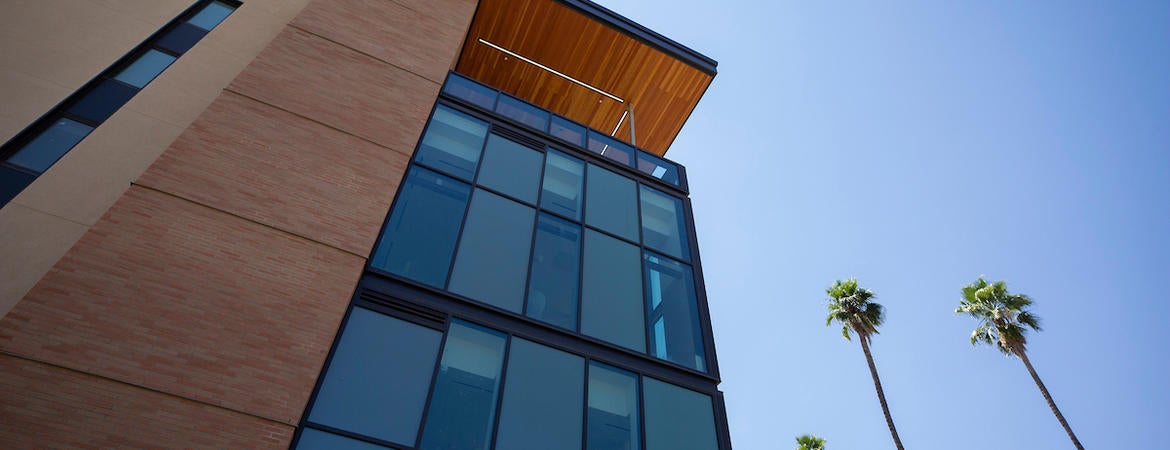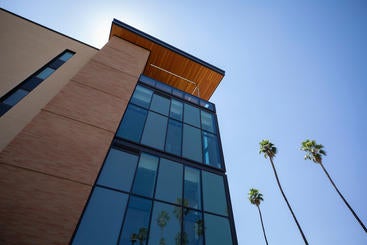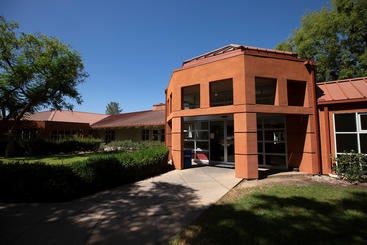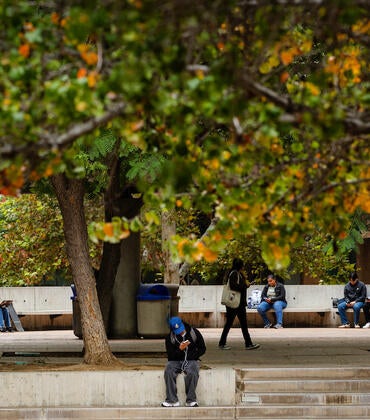UC Riverside will have fewer students living on campus and will test them regularly for the coronavirus as part of its fall quarter housing plan.
About 900 students are expected to move into the residence halls this weekend, compared to 4,200 in a typical year, said Robert Brumbaugh, senior director of Housing Services.
Symptom monitoring and testing will be a key part of the plan to keep students safe and healthy along with living arrangements that separate students into small groups. All rooms will be single occupancy instead of double or triple occupancy.
“We feel strongly we can have a model of success,” Brumbaugh said.
Testing for the coronavirus began in advance with each student required to provide proof of a negative test within 14 days of their assigned move-in date.
After getting tested — either at UCR or elsewhere — they’re required to fill out the UCR Daily Wellness survey each day during the 14 days prior to move in. Anyone with cold or flu-like symptoms is asked to stay home until those symptoms have disappeared for 72 hours.
Once they move in, Student Health Services will coordinate a regular testing program, setting up pop-up sample collection sites at or near the residence halls where they will be tested up to twice a week. Students can check-in with a barcode and provide a saliva test that takes minutes to complete.
Those samples will be delivered to the new COVID-19 diagnostic lab on campus that can provide results within 24 hours and process around 600 samples a day.
Once students move in to their rooms, they will be asked to sequester themselves into smaller groups or pods for seven days, leaving the residence hall only for essential activities. Each pod consists of about 20 fellow students within a particular hall or suite. Students that are part of the same pod would eat meals and take part in residential life programs together. Each pod is also assigned a resident advisor.
The pod concept will allow for easier contact tracing and limited exposure if a student tests positive for the coronavirus, Brumbaugh said. After the first week, those requirements will loosen but students are expected to stay within their pod as much as they can, he said.
They’re also expected to continue to self-monitor for symptoms and are discouraged from leaving campus. When returning to campus, such as during Thanksgiving or winter break, students will be immediately tested.
“We’re doing a lot of talking to them about what it means to be a Highlander,” Brumbaugh said. “Taking care of yourself is taking care of others too.”
For students showing signs of symptoms, Housing Services will provide a fully furnished apartment or room as part of its quarantine program. Those students will have safe access to food service, counseling, trash disposal, and network access while they recover.
Due to the reduced number of students living in residence halls, only Lothian and the new Dundee residence hall will be fully open but at half or less capacity. Pentland Hills will be partially open while Aberdeen-Inverness will remain closed.
Enhanced precautionary measures are being taken as part of the cleaning process. Public and high-touch areas such as lobbies, study rooms, and restrooms will be cleaned more frequently with stronger disinfectants.
Students will be asked to wear face coverings outside their rooms or pod areas. Hand sanitizers have been installed at entrances, dining facilities, elevators, and other communal spaces.
The campus hopes to minimize students going off-campus by providing their dining and social needs.
The new Glasgow Residential Restaurant, a two-story, 51,000-square-foot facility completed this summer, will offer a variety of breakfast, lunch, and dinner options. The building includes some outdoor dining areas, including a second-floor terrace, and a Scotty’s store for groceries and other supplies.
Students will be able to order food from Glasgow on a new mobile app. Other campus dining options that will be open include the Culinary Chameleon food truck — parked outside Glasgow — and the Barn. Only takeout dining will be available to begin the quarter.
Residential Life is putting together a variety of programs to create the college experience students seek. These include virtual games, movie viewings, discussions, and other events catering specifically to students living on campus. When possible, they will also offer in-person events that follow safe, physically distant guidelines.
New safety precautions have also been put in place for move-in weekend. Students will be given staggered appointments between Sept. 26-28. They will have 30 minutes to unload and given large, sanitized blue carts to move their belongings. No family or friends will be allowed in the buildings although staff will be available for assistance if needed.
Campus apartments, such as Glen Mor, will also be open this fall with about 1,000 residents, compared to around 2,500 in a typical year. Unlike residence halls, which are mostly occupied by first-year students, apartments are often the primary residence for continuing students.






